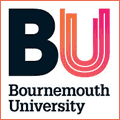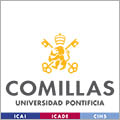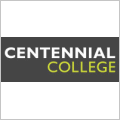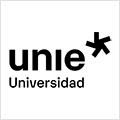Bachelor in Communication & Media - Grado en Comunicación y Medios
-
Imparte:
-
Modalidad:Presencial
-
Precio:Unlimited number of Scholarships available for next academic year
UK/ROI/Channel Islands: £11,440 year 1
International: £24,150 year 1 -
Comienzo:Septiembre 2026
-
Lugar:Bournemouth
Reino Unido -
Duración:2 Años
-
Titulación:BA (Hons) Communication & Media
Interested in managing social media for top brands, producing podcasts, creating digital strategies, or publishing compelling stories and content? This 2-year accelerated degree gets you career-ready for the fast-moving communication and media industries.
112-128 UCAS tariff points (A-level grades BBC–ABB) including a minimum of 2 A-levels or equivalent qualifications. We also accept a wide range of vocational qualifications including BTEC Extended Diploma (grade DMM to DDM) and T Levels (Merit). You’ll find many more listed in the table below.
International entry requirements:
If English is not your first language you´ll need IELTS (Academic) 6.0 with a minimum of 6.0 in reading or writing and 5.5 in all other components, or equivalent.
A dynamic and interdisciplinary approach that blends cultural studies, digital communications, journalism, storytelling and marketing communications, providing a comprehensive foundation in both cultural and digital media
Develop a critical understanding of how communication and media shape society, exploring key areas such as journalism, advertising, public relations and marketing, while exploring the impact of social media, influencers, political dialogue and global social issues
Gain hands-on expertise in multimedia design and production, covering areas such as podcasting, video, scriptwriting and online publishing. Access industry-defining software and technical resources, including computer labs and podcasting studios
Collaborate on real-world projects, generating innovative and imaginative ideas and solutions to support UK charities such as Volunteer Centre Dorset, The Pantry Partnership, GECCO (Champions for Change in the Early Years) and Dorset Road Safe Partnership
Gain valuable work experience across various media sectors during a four-week placement that you can choose to take during or after your studies. Expand your network and expertise, preparing for a successful start to your career
Showcase your work, publishing news and features across our student platforms: Fresher Publishing and Nerve Media, or learn to build a global audience on your own platform too.
YEAR 1
Semester one - Core units
Adventures in Popular Culture: You´ll explore debates about the value of cultural artefacts such as music, film, TV and adverts within contemporary popular culture, and consider theoretical discussions on topics such as gender, race, class, and the environment.
Introduction to Communication: Theory & Practice: You will explore and critically examine major theories of communication processes from different perspectives, engaging with relevant contemporary issues related to the study of communication. You will then learn how to communicate effectively in the digital age using industry standard software.
Principles of Marketing Communications: Shared with our Marketing Communications degree, in this unit you´ll discover marketing and branding theory, contextualising the marketing mix and the techniques of persuasion and research within the media and communications industries.
Semester two - Core units
Media, Culture & Society: This unit analyses the role of the media in society by examining the nature, history, structure, social and cultural roles of print, broadcast and digital media.
Introduction to Journalism: News & Features: You’ll develop professional journalistic skills in news and features, learning to research, interview, and use visual and digital skills. You will develop your own distinct voice, and delivering engaging news stories for a range of audiences.
Introduction to Storytelling: You’ll develop fundamental creative writing skills by learning the styles and conventions of different genres, and by engaging with the critical reading of scripts, novels, short stories, and poetry. This unit will give you a range of skills, which may include how to ‘perform’ your work as a radio play, how to edit it, and how to support your story with audio effects.
Semester three - Core units
Writing for the Media: During this unit you will have the opportunity to create projects using different industry standard formats, including visual news features, audio podcasts, storyboarding and screenplays. You will learn how contemporary media platforms impact storytelling in its many forms, develop an understanding of a range of softwares, apps and skills, and learn to structure their projects for an intended target audience.
Digital Communication: This unit aims to give you a critical overview and practical knowledge of the role played by digital communication in contemporary society, developing your digital skills using industry standard software
Brands & Branding: In this unit you will be introduced to the building blocks of brands, the theoretical principles of branding, and will also be exposed to theoretical applications in diverse situations and contexts.
YEAR 2
Semster one - Core units
Media: Messages & Meanings: This unit examines how messages are constructed, conveyed and received over a range of media and by different audiences. You will debate current affairs, analyse media content as a critical consumer, and consider how contemporary issues are framed by traditional and social media.
Media Convergence: This unit will enable you to develop and hone your skills of the creation and promotion of cultural media artifacts on multiple platforms which engage with topics such as intersectionality, inclusivity, and the Sustainability Development Goals, while imitating industry practice to realistic deadlines.
Advertising: You´ll discover how advertising can be used as a strategic marketing communications tool and will gain strategic and tactical skills in developing advertising campaigns and the evaluation techniques and measurements used to assess advertising success.
Semester two - Core units
Research Principles & Practice: You will be introduced to the aims, principles and techniques of social, media and marketing research and will be equipped with the skills needed to conduct primary research.
Remix Cultures: Building on Adventures in Popular Culture, in this unit you will be introduced to key concepts which help to explore how media texts inevitably draw upon, borrow from or quote previous texts and practices. Studying a variety of adaptations, remixes, and intertextual popular texts across the media including literature, cinema, television, music and graphic novels, you´ll learn about genre, authenticity, and the reception of these texts.
Public Relations: This unit introduces the theory and practice of public relations.
Semester three - Core units
Social Media Management: This unit will teach you how to critically engage with the principles, frameworks and theories of relevance to social media management. You will formulate a range of different strategic options appropriate to the organisation and marketing environment whilst developing approaches to implementing and managing social media programmes across markets, regions and cultures at strategic and operational levels.
Dissertation: You´ll undertake original and independent research to produce a dissertation on a topic or problem of your choice, using a communication, humanities or social science approach.
Account executive
Assistant media executive
Communications officer
Concept manager
Digital account executive
Junior copywriter
Marketing and communications coordinator
PR executive.




